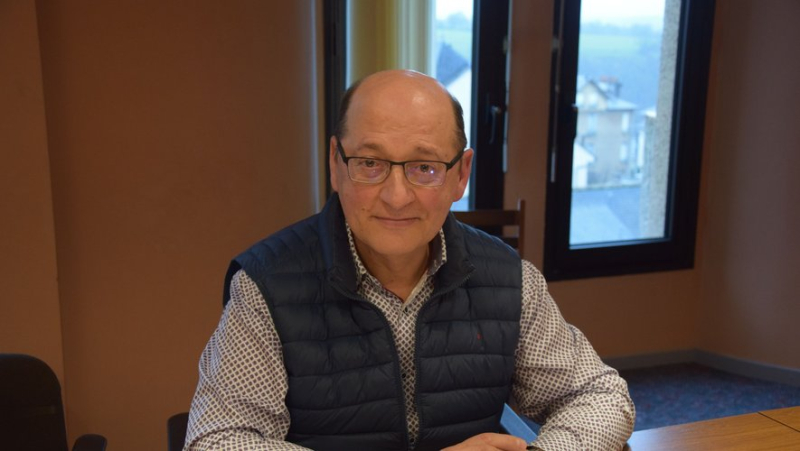Aveyron: “We are ready to welcome all doctors”, according to Dr Alain Vieillescazes

Le Dr Alain Vieillescazes se tournera pleinement vers ses missions du Conseil territorial de santé. Centre Presse
After six years at the head of the departmental council of the order of doctors, Dr Alain Vieillescazes will hand over at the beginning of February, after the elections. The opportunity to look back on the numerous actions carried out and on the future of care in Aveyron.
Six years after taking office as head of the departmental council of the order of doctors, Dr Alain Vieillescazes is handing over. He will not run again in the next elections which will take place at the beginning of February but he will find himself at the head of the Territorial Health Council. However, after six years of practice, the practitioner wanted to return to this "so particular episode, punctuated by the health crisis linked to Covid which shook up the field of health" ;quot;.
"I wanted to highlight what has been done during these years, finally to say that there is no only negative , underlines Alain Vieillescazes. In Aveyron, we were lucky that the work started by Dr Didier de Labrusse almost ten years ago was followed up. Everything was in place so that things could get done. The council of the order had assigned to itself skills which were not within its remit to advance health in Aveyron."
And the practitioner can take the example of the Installation Reception Unit which is structured around the departmental council, the CPAM, the ARS, the Attractiveness Agency and of tourism in Aveyron. "This entity, which meets monthly, has enabled the installation of around forty doctors, out of around fifty that we were able to meet, details Alain Vieillescazes. We can only welcome this even if we agree that there will always be a shortage of doctors and that it is never enough.& quot;
In figures
66 installations of general practitioners and 79 terminations, including 9 which were not maintained over the year 2023, were implemented. recorded between 2018 and 2024. Regarding specialist doctors, 46 installations and 31 terminations were recorded. recorded, always over the same period. 14 installations and 11 cessations were recorded. recorded for the year 2023 alone among general practitioners and 9 installations for 5 cessations were recorded. accounted for on the side specialist practitioners. 72 members are part of the Territorial Health Council; compound by elected officials, health professionals; and users.
31 health homes in Aveyron
To date, 31 healthcare centers are located in Aveyron and around thirty doctors have come to settle in the buildings of the Ruthenian conurbation. "Today, everything is in place to welcome new doctors, particularly among the internship supervisors who number 80, out of the 225 general practitioners in Aveyron" ;, completes the president of the council of the order.
Among the "successes" of his mandate, Dr Vieillescazes recalls the establishment of the medical center on call, attached to the Jacques-Puel hospital in Rodez, even if " ;it remains to attract new general practitioners". The practitioner also advocates for the establishment of the CPTS (territorial professional health communities) at the department level: "There is this need to offer an overall vision. If we cannot force health professionals to settle somewhere, we can at least guide them. Because not all territories are in the same need."
A territorial boarding school for health students
The territorial boarding school for health students in Rodez remains to be realized. Initiated in 2018, the project costing 8 million euros, received funding from the ARS (1.5 million euros), the Department (1 million euros), the ;#39;Agglomeration (1 M€) and the Jacques-Puel hospital (1 M€)."It's a project major project whose financing remains to be completed. South Aveyron must also ask itself the question of a boarding school, particularly with the median hospital. This will be one of the projects to be carried out."
Among the CTS's next missions: improving the organization of medical transport; develop access to care for people with disabilities, and of course fight against medical deserts, particularly for the most difficult areas.
I subscribe to read more




